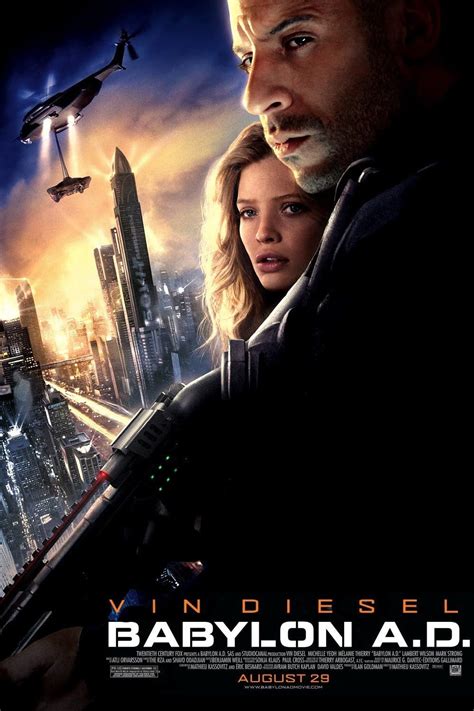In the realm of cinematic history, few films have managed to capture the essence of the early days of Hollywood as vividly as “Babylon.” Directed by Damien Chazelle, this 2022 epic drama brings to life the tumultuous 1920s, an era marked by the dawn of the film industry, unrestrained ambition, and the struggles of adapting to a rapidly changing world. “Babylon” is not just a film about movies; it’s an immersive experience into the heart of Hollywood’s golden age, filled with extravagance, romance, tragedy, and the relentless pursuit of dreams.
At the core of “Babylon” is a narrative that weaves together the lives of several key figures, all of whom are navigating the tumultuous landscape of early Hollywood. Jack Conrad, a silent film star played by Brad Pitt, finds himself grappling with the transition to talkies, a technological advancement that threatens to render his acting style obsolete. Opposite him is Manny Torres, portrayed by Diego Calva, a young and ambitious Latino man from Mexico who climbs the ranks of the film industry with a mix of talent, luck, and sheer determination. Then there’s Nellie LaRoy, played by Margot Robbie, an aspiring actress with a certain je ne sais quoi, representing the untold stories of countless young women who flocked to Hollywood in search of stardom and found themselves battling against the odds for recognition.
Chazelle’s approach to storytelling in “Babylon” is nothing short of monumental. The film is a cinematic behemoth, sprawling with vivid detail and an unbridled passion for the subject matter. Each frame is meticulously crafted, echoing the grandeur and excess of the Roaring Twenties. The cinematography is breathtaking, capturing the dichotomy of the era—the visceral grittiness of the filming process and the opulent extravagance of the stars’ lifestyles. The film’s use of soundtrack is equally impressive, weaving together period music with a dynamic score that amplifies the emotional highs and lows of the characters’ journeys.
One of the most striking aspects of “Babylon” is its unabashed look at the darker underbelly of Hollywood’s formative years. The film tackles themes of racism, sexism, and drug abuse with unflinching candor, painting a picture of an industry steeped in contradiction—where glamour and tragedy walked hand in hand. Chazelle’s exploration of these issues is multi-faceted, balancing the aspirational glow of Hollywood’s promise with the harsh realities faced by those who dared to dream big.
Despite its grand ambitions, “Babylon” has also been the subject of considerable debate. Some critics have argued that the film’s sprawling narrative and lengthy runtime detract from its overall impact, while others have praised its daring scope and thematic depth. The performances of the cast have been widely acclaimed, with particular praise going to the newcomers who bring a fresh energy to their roles. The film’s technical achievements, including its cinematography, production design, and sound, have also garnered significant attention, reflecting the meticulous detail and passion that Chazelle and his team brought to the project.
For viewers, “Babylon” offers a complex and deeply engaging cinematic experience. It’s a film that requires patience and attention, richly rewarding those who immerse themselves in its world. The journey through the highs and lows of early Hollywood is both poignant and exhilarating, offering a mirror to the past that also reflects the enduring allure of the film industry today.
In reflecting on the significance of “Babylon,” it’s clear that the film represents a major milestone in contemporary cinema. Chazelle’s ambition and the scale of his vision have resulted in a work that is as much about the power of filmmaking as it is about the fragility of human aspiration. As a film, “Babylon” stands as a testament to the enduring allure of Hollywood, a place where dreams are made, broken, and sometimes, remarkably, come true.
What is the central theme of the film "Babylon"?
+The central theme of "Babylon" revolves around the tumultuous early days of Hollywood, focusing on themes of ambition, love, and the struggle for identity amidst the rapid changes in the film industry during the 1920s.
Who are the main characters in "Babylon," and what are their roles in the story?
+The main characters include Jack Conrad, a silent film star; Manny Torres, a young and ambitious man in the film industry; and Nellie LaRoy, an aspiring actress. Each character navigates the challenges of the evolving film industry in their own way, representing different facets of the Hollywood experience.
What are some of the critical issues that "Babylon" addresses regarding the early days of Hollywood?
+"Babylon" tackles several critical issues, including racism, sexism, and drug abuse within the film industry during the 1920s. It provides a candid look at the darker aspects of Hollywood's formative years, contrasting the glamour of stardom with the harsh realities faced by many actors and industry workers.
How has "Babylon" been received by critics and audiences, and what are some of the debates surrounding the film?
+The reception of "Babylon" has been mixed, with some critics praising its ambition, performances, and technical achievements, while others have found its lengthy runtime and sprawling narrative to be detracting. The film has sparked debates about its portrayal of historical events, its thematic depth, and the challenges of capturing the essence of a bygone era on film.
What does "Babylon" signify in the context of contemporary cinema, and why is it considered a significant film?
+"Babylon" signifies a major milestone in contemporary cinema due to its ambitious scale, thematic depth, and the nuanced way it explores the human condition through the lens of Hollywood's early years. The film is considered significant not only for its technical achievements and performances but also for its thought-provoking portrayal of the enduring allure and the darker underbelly of the film industry.
As “Babylon” continues to captivate audiences and inspire critical discourse, its place within the pantheon of great films about Hollywood seems assured. It is a testament to the enduring power of cinema to captivate, to inspire, and to challenge our perceptions of the world and our place within it. Chazelle’s masterpiece stands as a bold statement about the highs and lows of the human experience, set against the backdrop of one of the most fascinating and tumultuous periods in Hollywood’s history.



